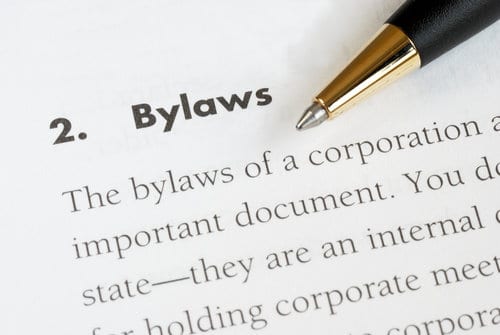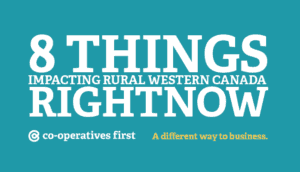How co-operative bylaws influence business
A co-operative’s bylaws are one of the – if not the most – important documents for your business. Bylaws set out the rules and regulations underpinning the business operations, governance, and procedures for decision-making. They define your organization and shape how decisions are made. These co-operative bylaws also reflect the purpose of the business and how shareholders participate in their business. Getting your co-operative’s bylaws right will help ensure the success of the business and prevent headaches down the road.
Take the time to get it right.
For those building a co-operative business, it’s important to invest time and resources in the development of bylaws to ensure the product of your hard work is sustainable. Sure, most people will simply skim the bylaws, but if something goes off the rails, you’ll be glad the process you need to follow is clearly defined.
Your co-operative’s bylaws are a guide in stormy waters.
For example, imagine a case where a member of the board of directors is making decisions that are not in the best interest of the business. Asking the person to resign may not be effective and could elevate existing tensions. Waiting until the director is up for re-election could hinder the board’s ability to make decisions and impact business operations. Taking the time in the planning stages to develop a ‘Removal of director by directors’ or ‘Removal of director by shareholders’ bylaw will outline a process that can be followed to remove problem-directors from the board without compromising working relationships or inciting legal conflict.
But bylaws also provide a map for the mundane.
Removing a director from a board is an extreme example. Most people willing to serve on a board have good intentions and want to see the business thrive. But challenging situations aside, bylaws also help guide the most seemingly mundane procedures, like meetings and voting.
Take quorum, for example. Quorum refers to the minimum number of shareholders that must be present to vote on business related to the co-operative. Many organizations set quorum at a percentage of their total membership – often somewhere in the ballpark of 5%-20%, depending on the size of the organization. However, when setting up bylaws, we should always be mindful of shareholder growth. 5% of Prince Albert Co-op’s membership, for example, is approximately 1700 people. Getting such a large group of people together every year would be an extremely difficult task and may result in very little business being discussed at meetings. For this reason, many co-operatives set quorum at a nominal figure (e.g. 25 shareholders) based on the size of the organization. Other, smaller co-operatives develop a more streamlined and pragmatic approach, and only require the board plus two shareholders to achieve quorum.
Take care. Co-op bylaws can be wolves in sheep’s clothing.
Other bylaws may appear straightforward, but could have damaging impacts on the co-operative business and its shareholders. Pay close attention to these ones:
- Conditions of Membership. This section determines who can purchase a share in the business and how many shares are issued. Defining this section has large implications for the type of business being developed. Open membership is generally good for retail operations, like grocery stores, but limited membership is probably better in the case of an assisted-living housing development. Clearly articulating the conditions of membership to align with business goals is very important to the sustainability of the business.
- Allocation of surplus (profit). This section determines what you do with profits. If there is profit, is it invested back into the business? Distributed to shareholders? Invested or donated to the community? These are important questions that impact the types and number of shareholders the business attracts – the answers should reflect the values and goals of the business.
- Directors. This section determines who can sit on the board of directors. What are the qualifications needed to be a director; how is one nominated to be a director; what is a director’s term length; what happens if there is a vacancy on the board; what powers are afforded to the board? The answers to these questions will determine the types of people who are attracted to these positions, how effective they can be and the kinds of decisions they’ll be able to make.
It’s a difficult job, but someone’s got to do it.
Investing time and energy into the development of your co-operative’s bylaws, and other foundational documents, will set your co-operative business up for success. And you don’t have to tackle this process alone. Organizations, like Co-operatives First, have the expertise and resources to help you develop effective bylaws that reflect the unique needs and characteristics of your co-operative business.
Our Guide to Writing Bylaws is a great place to get started! Read it here.

 Written by
Written by 


